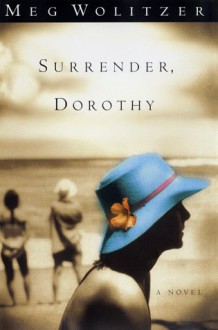Upon the publication of Meg Wolitzer's most recent novel, Friends for Life, The Washington Post warned that the novel "should carry a warning label: This Book Will Keep You Up Later Than You Think." Now, in a novel that explores the impact of a young woman's shocking, early death on her mother...
show more
Upon the publication of Meg Wolitzer's most recent novel, Friends for Life, The Washington Post warned that the novel "should carry a warning label: This Book Will Keep You Up Later Than You Think." Now, in a novel that explores the impact of a young woman's shocking, early death on her mother and on her circle of longtime friends, this prodigiously talented writer -- without abandoning her signature wit and satiric sense -- also moves into deeper, more turbulent water. Every August since college, Sara, Adam, Maddy, and Peter have shared the same summer house on the eastern shore of Long Island. The shining light of the crowd has always been Sara, a young woman with an allure that causes women to confide in her and men to fall in love with her. When Adam -- a noted gay playwright -- and Sara decide, on the very first night of their vacation, to ride into town to get some ice cream, "death is nothing more than a far-away province, a kingdom reserved for parents and grandparents, and the valiant young men who walk in soldierly groups." But then tragedy occurs and the overriding question becomes: Who owns this broken girl now, her mother or her closest friends? For this tight clan of young people, still dumbly caught in that nebula of their late twenties and early thirties, Sara's death forces them to rethink their notion of what it means to be a friend, what it means to grow up, and, finally, what it means to be mortal. At its most introspective and moving center, however, Surrender, Dorothy is the story of what happens to Natalie, Sara's mother. This mother-daughter relationship was of such closeness that they'd become a kind of couple -- a couple that told each other everything. But in the wake of the accident, Natalie is forced to realize that when a child dies, there is only one truth: You can't get over it, ever, but still you have a life to live.
show less

